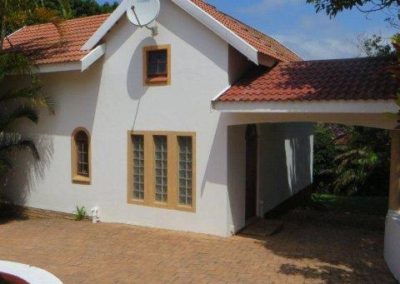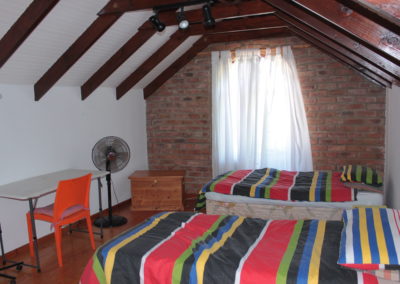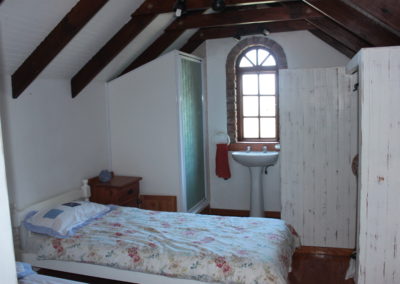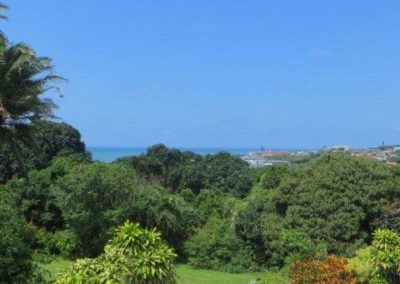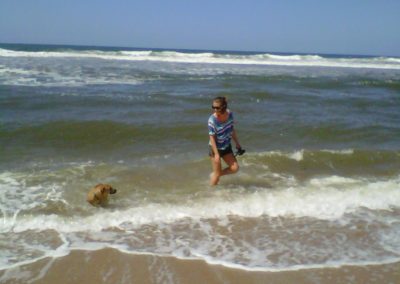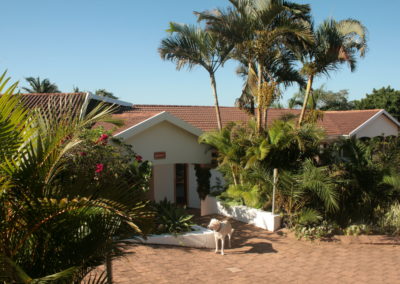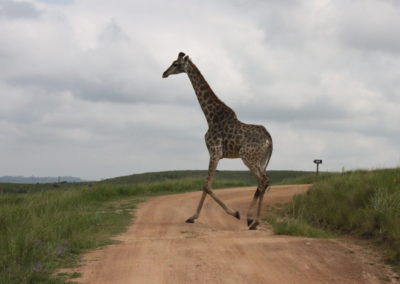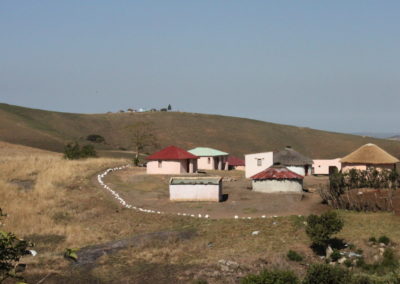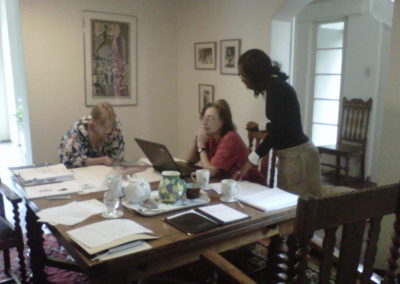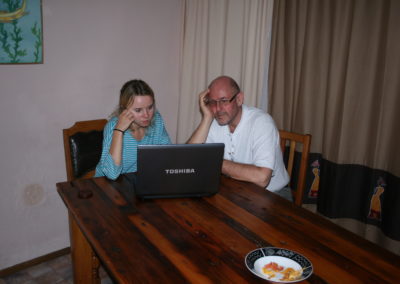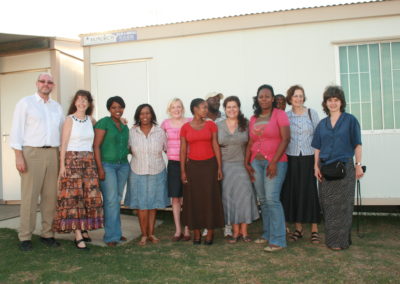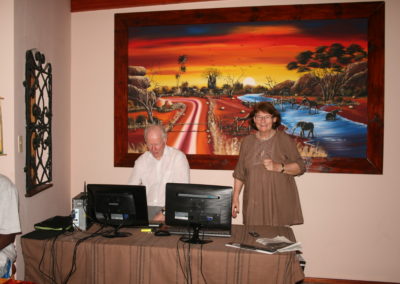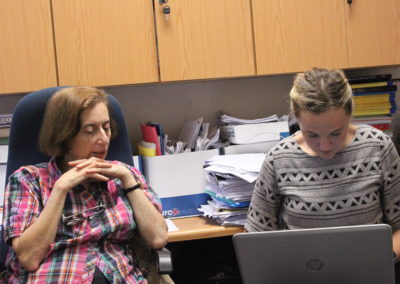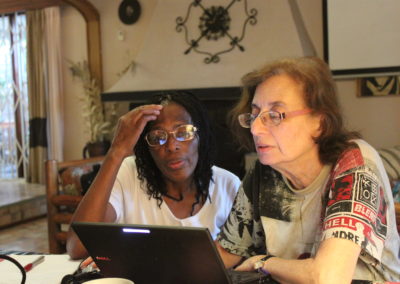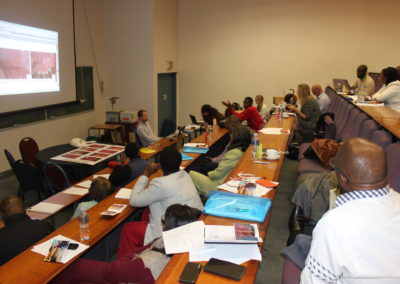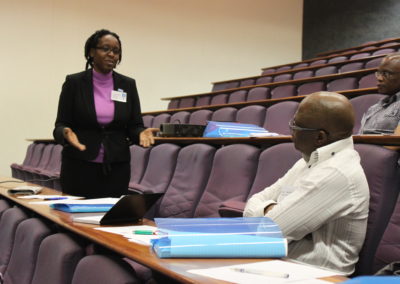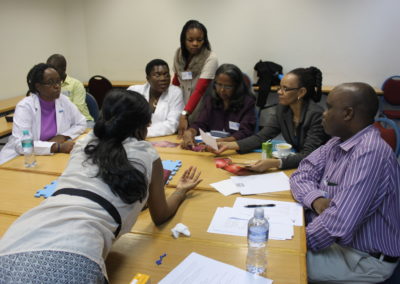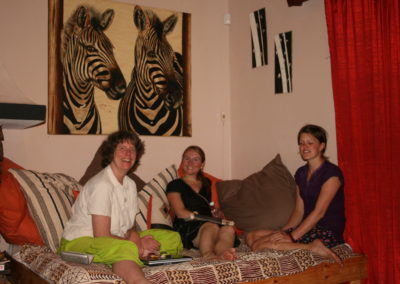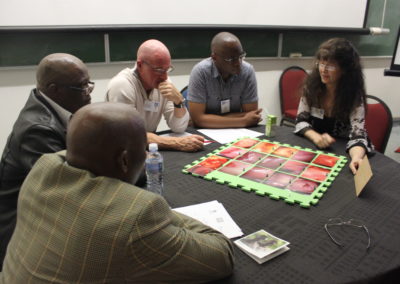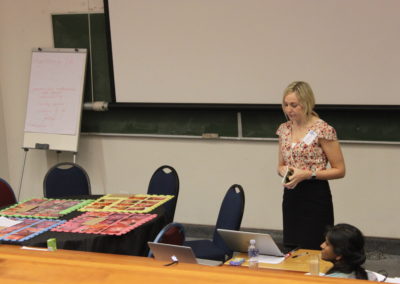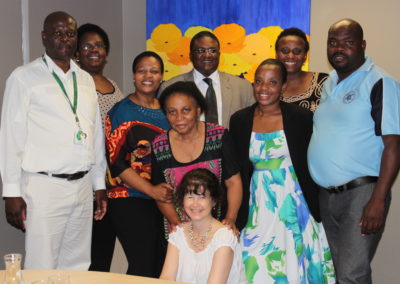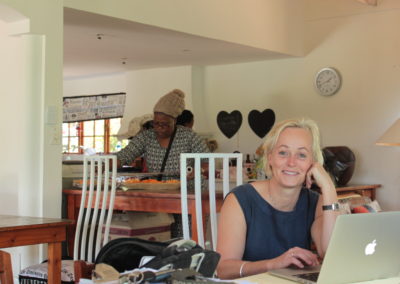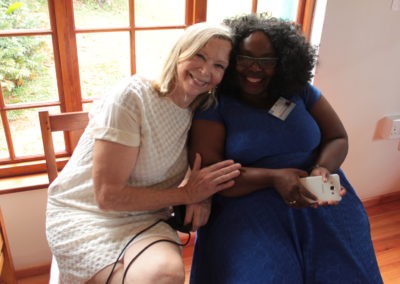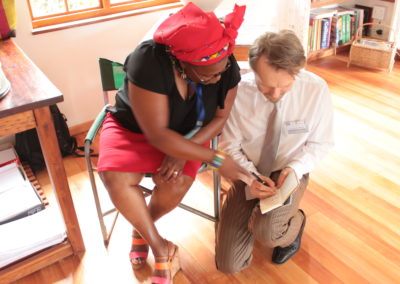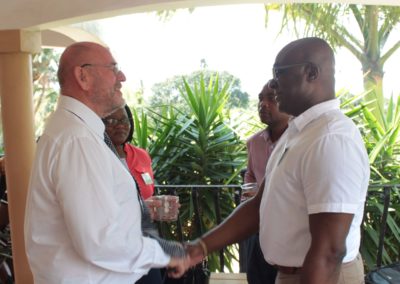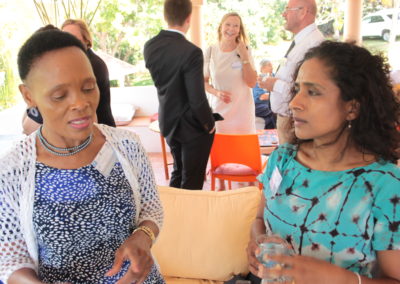Visiting consultants/specialists/experts
Key focus: sustainability and relevance – You are investing in others’ growth
We may be able to organise attachments (minimum 2 months) in the scenarios below. We also welcome other ideas. All projects need to go through a cascade of events:

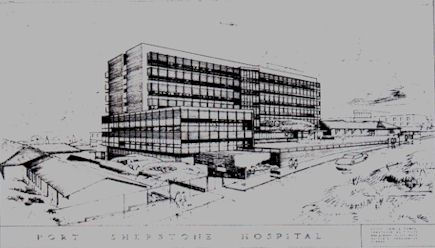
Tertiary hospital
Regional hospital in Ugu district, serving 730.000 people and 3 (4) hospitals. Services: Casualty /Trauma, Dentistry, General Medical, General Surgical, High Care, Intensive Care, Maternity, Laboratories, Theatres, Orthopaedic, Physiotherapy, Psychiatric, Specialist Services, Radiology
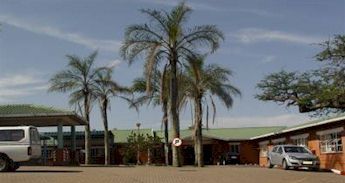
Secondary hospital
District hospital with 300 beds, serving 226.000 people and 6 satellite clinics. Services: Emergency, Gyn-Obstetrics, Orthopedics, Paediatrics, HIV, TB, Crisis centre, Dentistry, Diet, Outpatient, Social Work, Optometry, Psychiatry, Psychology, Physiotherapy, Speech therapy, Audiology.

Primary care
Clinics are the first entry points for the patients into the health system, sometimes after having visited traditional healers. Here patients receive their first course of antibiotics and their first tentative diagnosis. A few clinics have labour wards and some provide overnight services
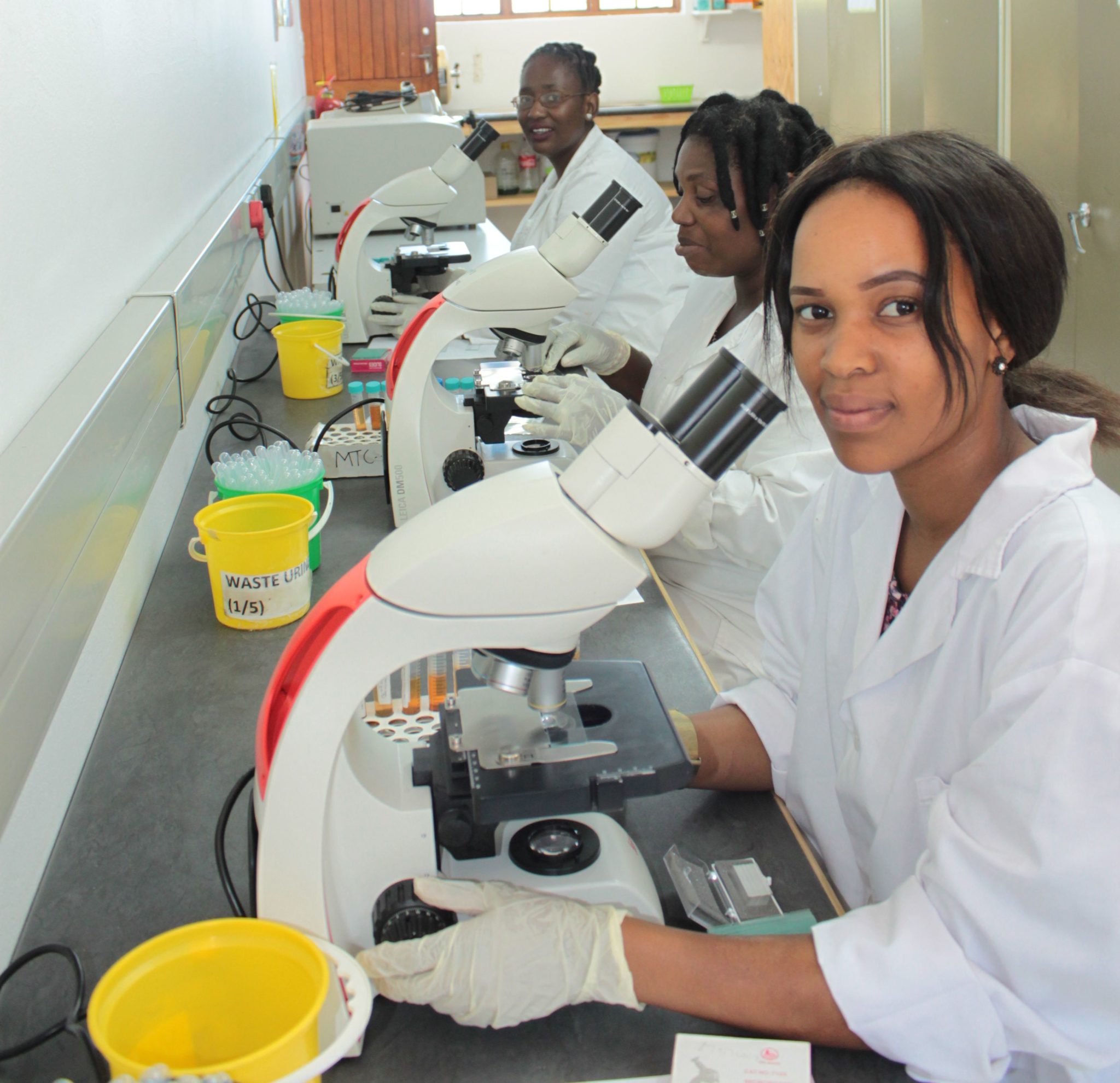
Join existing research projects!
This work entails helping out in the largest study in the world on Female Genital Schistosomiasis. You will analyse facts and specimens in close collaboration with world experts. Alternatively DIY – make your own study.
On-site accommodation is recommended for the first 3-6 months in South Africa. We also recommend family involvement according to hobbies, expertise or interests. This could entail maintenance, building, preparation of social events and meetings, taking care of people or animals etc.etc.
Anti-imperialism check list
The last decades a new trade has emerged of harvesting experiences, degrees or publications for first world benefit. First world professionals will visit exotic study sites, they need help to get started, help to implement work and research; they will enjoy the hospitality, the weather, and the adventure. They will use goodwill, infrastructure and permits.
- Make sure you are not a burden in any way
- Share the financial burden (e.g. through your own applications)
- If you want to give something you must ask the management what is needed
- Give more than you take
BRIGHT is doing groundbreaking work and it must reach the larger community. Therefore with BRIGHT, your focus will be publishing rather than writing for ‘the dusty shelves’ of your institution.” Researchers will collect data for a worthy cause and implementers must document and report what they have done. However, many publish interesting results in journals that are not available to African health professionals and visiting scientists work only to further only their own careers or their home institutions. It is the responsibility of the visiting expert to:
- Contribute to the work beyond your own data collection
- Make sure that the information is given back to those that need it
- Publish so that information is accessible to those that need it in scientifically reknowned journals
- Publish good work, reliable, sound data within reasonable time
- Recognise that you can only do this because you are part of a team
- Invite others to participate as equal partners
- Ensure that the data you have collected is useful
- Ensure that your unfinished work can be inherited easily
- Ensure that your needs for data and information are fulfilled before you leave
- Make a plan in case you need anything after departure
3 codes of conduct that researchers in BRIGHT (and Africa) must adhere to
- The universal codes of research (Vancouver regulations and IRBs, National Boards of Ethics etc) must always be adhered to.
- Secondly, in pre-colonial disadvantaged scientific communities we must take care not to become exploiters just because we have vantage points to do so (money, time, opportunities, institutional support, access to computers, literature, night-time electricity etc. etc. ). We cannot harvest data for European careers only. It is not right to have an all-white authorship on articles that were generated from African problems. It is our duty to involve local collaborators and provide opportunities at an early stage of the work so that the code is not breached. There are many ways to promote this, speak to the most competent (in this issue) supervisor.
- The collected data must be useful to the locals. We have a responsibility to give this information back – in some way – to Africa. This is particularly important if we identify “new” (in any sense of the word “new”) issues that may affect Africans. It is not acceptable to test medication on Africans for a brief time if there is no intent to make it (realistically) available to Africans. The local African scientists can help us manage these ethical dilemmas.
General requirements
Experts are typically senior consultants on sabbatical, most will have a PhD/significant experience in their field.
- Flexible, able to take direction and accept feedback, team worker, minimum stay 2 months. Normal stay 3-9 months. Fluent in English, driver’s license
- Expressed commitment to the “Anti-imperialism check list” and the “3 codes of conduct” (above)
Application should contain
- 1-page letter of motivation. Please indicate the possible time period(s), minimum 2 months.
- CV should contain: two references, facts about your previous work and research
- Scanned certificates
- Certificate preparatory course 1 HSP (2 hours) – also useful for other jobs
- Please read the document “Data use and publications”
- Please write in English and send to Professor Myra Taylor and Dr. Eyrun Kjetland ([email protected], [email protected]).
Possible scholarships
You are responsible for your own funding but we will be involved in the application process
Visiting experts
Gynaecologist and Public Health Expert Francis Hyera (Tanzania/ South Africa), HoD CDC Mpumalanga Mandla Zwane (SA), Gynaecologists Ledzinsky (Port Shepstone South Africa) and Mocumbi (Maputo, Mozambique), and FGS expert Kjetland choosing images
Department of Health (National CDC, SA) with schistosomiasis WHO expert Dr Garba and Professor Kjetland
Visiting prof Roald and CEO of Port Shepstone Hospital, Dr Dlamini – the first steps of a hospital study
Professor Gundersen meets District Medical Officer Dr Olowookorun in the presence of a PhD and a Masters student

